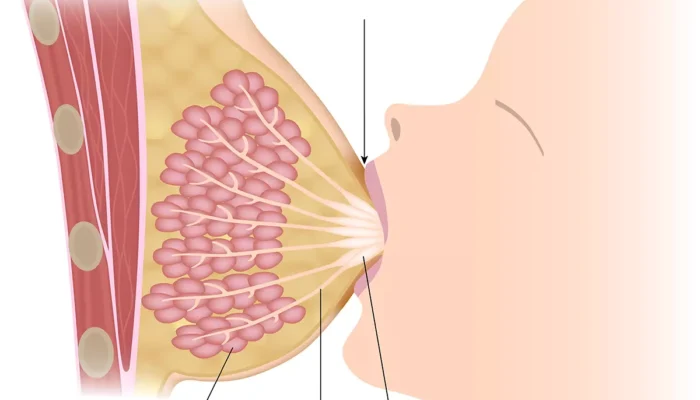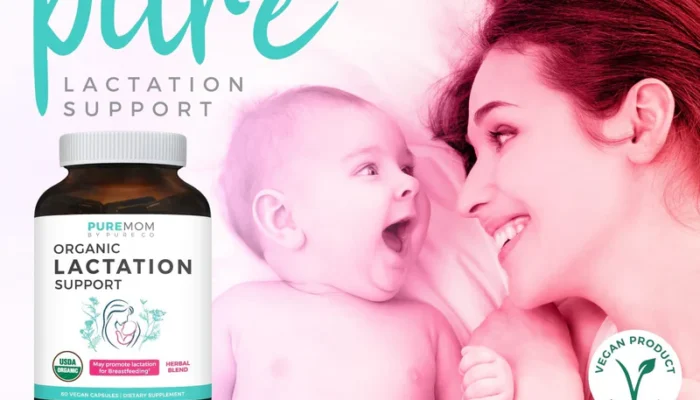Pregnancy and postpartum health are crucial for both mother and baby. A well-nourished mother not only ensures a healthy pregnancy but also lays the foundation for producing strong, nutrient-rich breast milk. Whether you’re newly pregnant or preparing to breastfeed, here are the best science-backed facts and tips to help you along the way.
- Nutrition is the Cornerstone
A healthy pregnancy starts with what you eat. During pregnancy and lactation, your body has increased nutritional demands to support fetal development and milk production.
Key Nutrients for Pregnancy:
- Folate (Folic Acid): Crucial in the first trimester to prevent neural tube defects. Available in green leafy vegetables, lentils, and cereals that have been fortified.
- Iron: Supports increased blood volume and prevents anemia. Sources include red meat, spinach, and beans.
- Calcium: Essential for fetal bone development. Found in dairy products, almonds, and tofu.
- DHA (Omega-3 fatty acids): Essential for the growth of brain and eye functions. Found in fish like salmon and flaxseeds.

Key Nutrients for Strong Milk:
- Protein: Helps with milk volume and quality. Include eggs, poultry, dairy, and legumes.
- Vitamin D: Supports the absorption of calcium while improving immune performance. Get some sun, fortified milk, or supplements.
- Iodine: Supports infant brain development. Found in iodized salt, seaweed, and dairy.
- Hydration: It is important to drink sufficient water — target at least 8 to 10 glasses each day during the breastfeeding period.
- Prenatal Care Saves Lives
Regular checkups with your OB-GYN or midwife ensure that both you and your baby are progressing well. Prenatal care includes:
- Routine ultrasounds and lab tests
- Monitoring blood pressure, weight, and fetal growth
- Early detection of gestational diabetes or preeclampsia
Fact: Women who receive early and consistent prenatal care are more likely to have healthy, full-term babies.
- Avoid Harmful Substances
Pregnancy is not the time for shortcuts. What you choose not to partake in holds the same level of importance as what you actually consume.
Avoid:
- Alcohol and smoking: Can cause birth defects and low birth weight
- Excess caffeine: The recommended maximum is 200 mg per day, which is roughly equivalent to one 12-ounce serving of coffee.
- Certain fish: It is advisable to steer clear of fish known for their high mercury content, including swordfish and king mackerel.
Bonus Fact: Even moderate alcohol can pass into breast milk. Always consult your doctor about safe limits.
- Physical Activity Benefits Both Mom and Baby
Staying active during pregnancy:
- Reduces risk of gestational diabetes and preeclampsia
- Improves sleep and mood
- Prepares your body for labor
Safe exercises include:
- Prenatal yoga
- Swimming
- Walking
- Pelvic floor (Kegel) exercises
Fact: Regular exercise can also support better milk production postpartum due to improved circulation and hormone regulation.
- Mental Health Is Physical Health
Pregnancy hormones can affect mood and emotional well-being. Anxiety, depression, and mood swings are common — and treatable.
Support mental wellness by:
- Practicing mindfulness or meditation
- Getting adequate sleep
- Engaging in conversation with a therapist or participating in a support group
- Seeking support from friends, family, or a doula
Fact: Postpartum depression affects 1 in 7 women. Don’t hesitate to seek help if you’re struggling emotionally after birth.
- Breastfeeding Facts for Strong Milk
Breast milk adapts to your baby’s needs — but quality depends on your own health too.
Tips for strong, nutrient-rich milk:
- Feed on demand: More nursing = more milk
- Skin-to-skin contact: Stimulates oxytocin, which promotes milk let-down
- Eat a balanced diet: It is essential to consume an extra 300 to 500 calories daily during the nursing period.
- Avoid restrictive diets: Nutrient deficiencies can affect milk quality
Fact: Colostrum, the first milk produced after birth, is packed with antibodies and acts like a natural vaccine for your newborn.
- Sleep and Rest Matter
Quality sleep promotes hormone balance, reduces stress, and supports healing after birth. While pregnancy may disrupt your normal sleep patterns, you can:
- Use pillows for support
- Nap during the day
- Avoid screens before bed
- Create a calming bedtime routine
Fact: The hormone prolactin, which is crucial for the production of milk, is released in higher quantities during feedings at night. Rest supports better lactation!
- The Gut Connection
A mother’s gut health impacts her baby’s immune system and digestion — through the womb and breast milk.
Improve gut health by:
- Eating probiotic-rich foods (yogurt, kefir, sauerkraut)
- Taking a prenatal probiotic (with doctor’s approval)
- Eating fiber-rich foods (whole grains, fruits, and vegetables)
Fact: Babies born vaginally and breastfed tend to have stronger gut microbiomes — the foundation of lifelong health.
- Natural Supplements to Support Pregnancy and Milk
Always consult a healthcare provider before taking supplements, but many women benefit from:
- Prenatal vitamins
- DHA omega-3 supplements
- Fenugreek or moringa (for milk production)
- Vitamin D and iron if deficient

Fact: A mother’s vitamin D status directly affects the vitamin D level in breast milk — supplementation may be necessary.
- Listen to Your Body
Pregnancy and lactation are not one-size-fits-all experiences. Have confidence in your gut feelings, keep a record of your symptoms, and do not hesitate to seek clarification.
Signs you need extra care:
- Extreme fatigue or dizziness
- Pain during breastfeeding
- Persistent nausea or vomiting
- Low milk supply or baby not gaining weight
Fact: Early intervention is the best way to stay on track — whether it’s with a lactation consultant, dietitian, or OB-GYN.
Final Thoughts
A healthy pregnancy and strong breast milk don’t require perfection — just informed, consistent choices. Prioritize nutrition, rest, and emotional well-being. With the right habits and support system, you can nourish both yourself and your baby during this incredible chapter.
